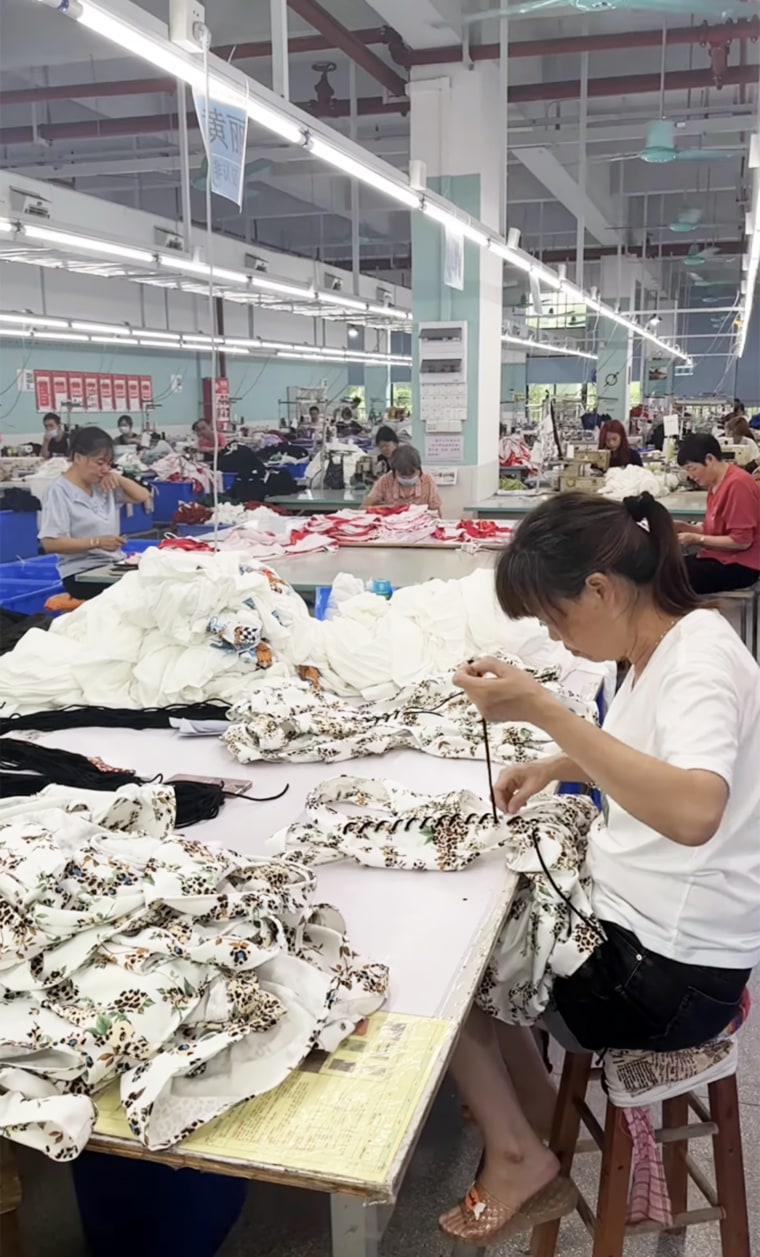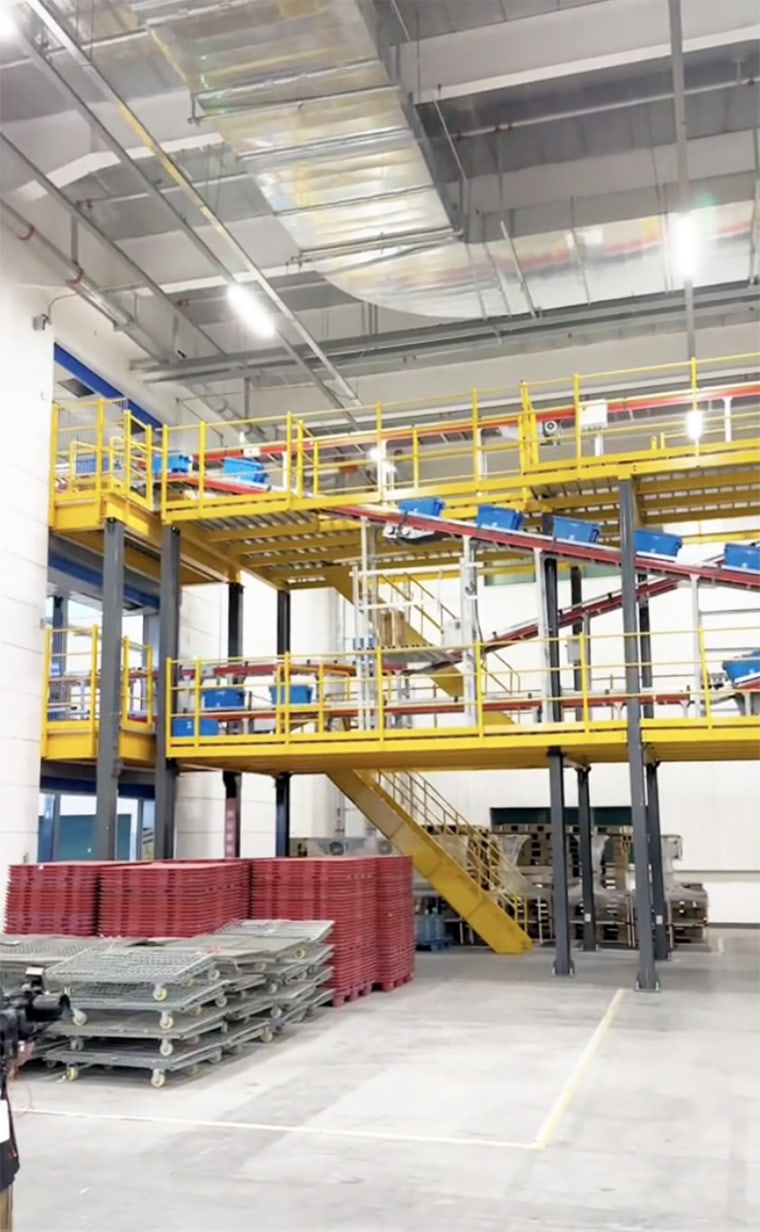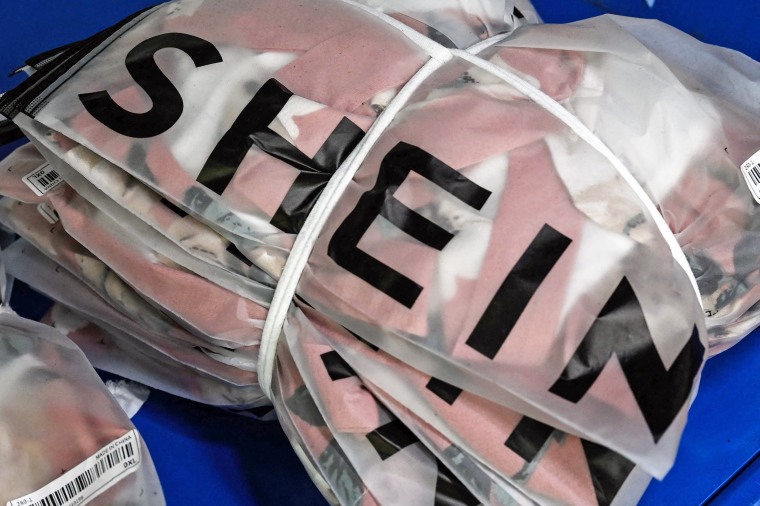With over 29 million Instagram followers and the largest fast fashion market share in the U.S., Shein has no shortage of devotees.
But the retail giant, known for its low prices, has also come under fire over allegations of environmental harm or abusive labor practices. This June, the corporation has opened its doors in what appears to be a bid for a cleaner public image — and incited controversy in the process.
In a rare move among fashion retailers, Shein invited social media influencers last week for a tour of a model factory in Guangzhou, China, called the “Innovation Factory.” Since then, the trip has put heat on the influencers for promoting a brand well-known for backlash over ethical issues.
“With this PR stunt, Shein is trying to position itself and fight against the reputation that it has as a fast fashion behemoth that is exploitative and careless in how it thinks about the ethics along its supply chain,” Shivika Sinha, founder of the sustainable styling service Veneka and former fashion marketing consultant, tells TODAY.com.
What are the allegations against Shein?
Multiple news investigations and documentaries have investigated conditions at other Guangzhou factories used by Shein (the influencers visited one out of thousands). A Swiss advocacy group, Public Eye, found that employees worked 75-hour work weeks. A Channel4 documentary found that they were paid for less than $20 per week.
The company was also reported to be sourcing cotton from Xinjiang, per a Bloomberg-funded laboratory test, where the Chinese government has been accused of holding hundreds of thousands of ethnic minorities in internment camps and forcing them to pick cotton or work in textile factories.
The brand has also faced criticism over environmental and health concerns. In 2021, CBC Marketplace reported that Shein was selling toddlers’ jackets containing almost 20 times the amount of lead that Health Canada permits for children.
Perhaps the most prominent criticism, however, has focused on Shein's high-consumption business model, propelled by its low clothing prices. The company produces tens of thousands of garments per day and reportedly releases over 6.3 million tons of carbon per year, roughly equivalent to 180 coal power plants, per Synthetics Anonymous 2.0, a report published on fashion sustainability.
The company has appeared to take some of consumers’ concerns regarding sustainability into account for its marketing efforts. In April 2022, the brand launched evoluSHEIN, a line of clothing items made partially with recycled polyester.
“Consumers these days are no longer looking just at price,” Shein executive vice president Donald Tang said at the World Retail Congress in Barcelona this past April. “In the next phase of growth we need to think everything we do with ESG in mind.”
ESG stands for “environmental, social, and governance” and generally refers to the social responsibility of corporate practices.
Who were the influencers and what did they see on the trip?
Shein is known to use influencers at the center of its marketing strategy, which caters largely to Gen Z consumers.
In 2018, Shein's first year expanding marketing efforts to India, the company collaborated with around 2,000 local influencers, per an interview with Shein's then-marketing officer for India, and was reaching out to more influencers daily. Shein was banned by India in 2019, then relaunched in 2023.
TikTok is an especially important platform for the brand in this regard, with videos of Shein clothing hauls generating billions of views.
“They really understand how to work with influencers, how to parlay with these platforms really well in a way that Zara and H&M just weren’t able to do,” Sinha says. “And so it makes sense that they reached out to influencers to do this.”
The influencers on the factory trip included Dani Carbonari (known as Dani DMC), Destene Sudduth, Aujené, Fernanda Campuzano, Kenya Freeman, and Marina Saavedra. TODAY.com has reached out for comment. Some TikToks were taken down.

The influencers spoke to factory workers, according to their videos, and reported their findings.
"When I asked them questions like, 'What does your work week look like?' Most of them work 8 to 6 and their commute is 10 to 15 minutes, just like normal," Sudduth said in one of her videos posted on Instagram. "I expected this facility to be filled with people salving away. I was pleasantly surprised that most things were robotic. Everybody was just working like normal. They weren't even sweating."
Sudduth's caption pointed to the intent of the trip, which seemed to be letting influencers see things for themselves: "Thoroughly enjoying this experience and seeing things with my own eyes."
The videos by Sudduth and the other influencers featured clips of clothing items being transported on automated rail systems and workers sitting at clean desks under bright white lights.
Outside of the “Innovation Factory,” the influencers’ trip included brand-sponsored luxury hotel rooms, excursions in Guangzhou, and a ten-course dinner.
Influencer Fernanda Campuzano, who was on the trip and has a fashion line with Shein, described the professional opportunities the trip posed in a statement to TODAY.
“This program has given me the opportunity to manufacture and sell my designs to customers worldwide while promoting my own brand which is something no other company has ever offered me before," she wrote. "This trip to Shein's innovation center was an opportunity to see for myself how my designs come to life in real time as well as to see more of the behind the scenes of how Shein operates.”

Alden Wicker, a freelance investigative journalist with bylines in the New York Times, Wired, and Vogue, tells TODAY.com that the influencer trip was unconventional in that most fashion brands do not allow visitors in the factories that they contract with. She said that she even once tried to arrange a visit to a Los Angeles factory contracted by Reformation, a brand that markets itself as sustainable fashion, and was blocked.
“I think somebody who was more astute or who was actually a seasoned investigative journalist — they would have been able to see through a lot of this,” Wicker says, responding to Carbonari calling herself an "investigative journalist" in a video. “They would have noticed the things that they weren’t allowed to see or the questions they weren’t allowed to ask … She was able to be manipulated very easily into thinking that this was a full view into their supply chain.”
In a statement to TODAY, Shein said the trip was part of the company’s “commitment to transparency.”
“This trip reflects one way in which we are listening to feedback, providing an opportunity to show a group of influencers how SHEIN works through a visit to our innovation center and enabling them to share their own insights with their followers,” a Shein spokesperson wrote. “Their social media videos and commentary are authentic, and we respect and stand by each influencer’s perspective and voice on their experience. We look forward to continuing to provide more transparency around our on-demand business model and operations.”
What has been the response to the trip?
The factory trip has sparked backlash across social media platforms and in the influencers’ own comment sections.
Kara Fabella, an Instagram influencer focused on sustainable fashion, tells TODAY.com that the slow fashion community is “appalled at the hypocrisy of it all.”
“One of the big things that I’ve had discussions about with my peers is the fact that they really targeted a lot of plus size as well as POC influencers,” Fabella says. “And there’s such an irony to that because not only are they exploiting voices within the fashion influencer space of typically quote-unquote ‘marginalized’ groups, but it’s also (that) Shein is one of the worst abusers of human rights issues within the garment worker factory space.”
Although she sees the influencer trip as a PR stunt, Sinha says it was “heartening” that it seemed to signal to her how the pressure on Shein from consumers regarding sustainability and ethics was making enough of a difference for the company to pay attention.
“It means that something is happening internally in their corporate conversations,” Sinha says. “Enough has happened outside of them for them to sit up and take notice of this issue. I think it’s up to consumers and advocates to keep pushing and to keep holding them accountable and to not be disheartened whatsoever."
